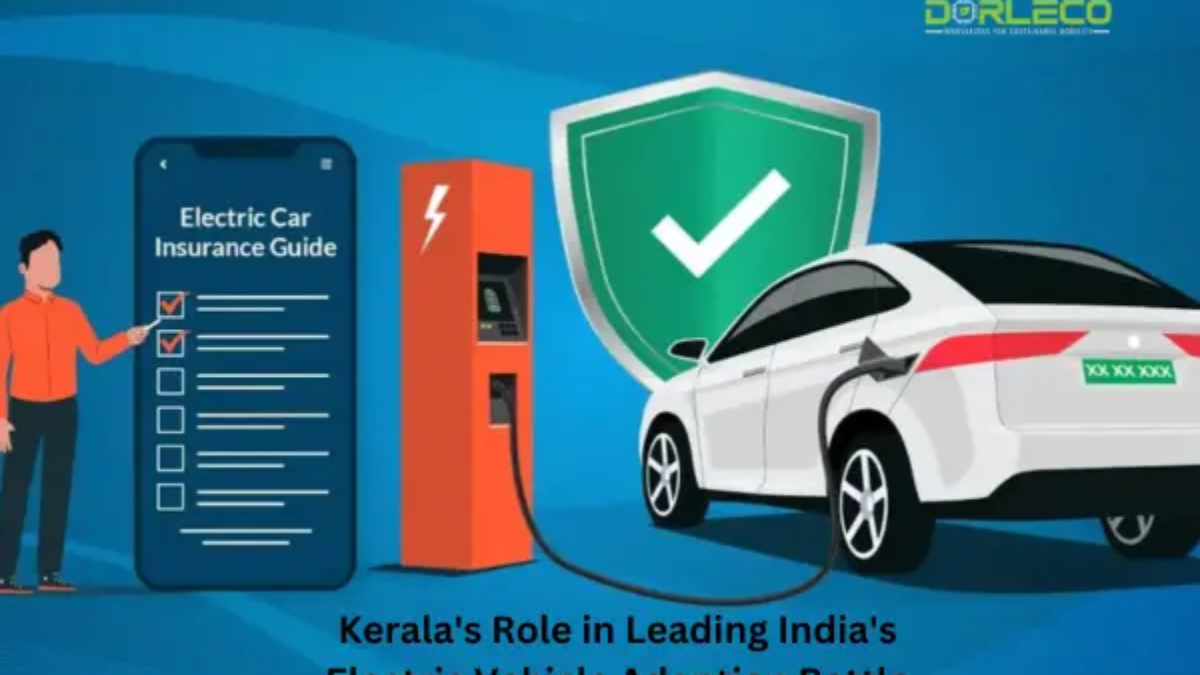Electric Vehicle Adoption Battle
Automakers are perplexed by the unexpected increase in demand for electric vehicles in Kerala. Kerala is second in India for Electric Vehicle Adoption, only behind Maharashtra, even though it only accounts for around 4% of all passenger vehicle sales in the country.
Improved charging infrastructure, lower operating costs, and increased customer knowledge are some of the factors driving sales in states like Gujarat, Kerala, and Karnataka.
Kerala is a little southern state that accounts for about 4% of all passenger vehicles sold in India, therefore automakers like Tata Motors and MG Motor India are claiming significant demand for electric cars from this state, which has confused the country’s demand trend.
Kerala has been a leader in the Electric Vehicle Adoption of this technology, only surpassed by Maharashtra in absorbing electric vehicles like the Tata Tiago EV and MG Comet, which were introduced into the mainstream market in the last 12 to 18 months at reasonable prices.
Gujarat and Karnataka come after it. In CY2023, the three states collectively accounted for approximately 35% of the 82,000+ electric vehicles sold nationwide.
Senior industry executives told ET that more customer awareness, cheaper operating costs, and a greater distribution of charging infrastructure have been pushing increasing sales in these states.
“As people get more knowledgeable about technology and how to use it, worries about range anxiety are decreasing. We are witnessing an increasing number of customers becoming at ease (purchasing electric cars), particularly in these states (Kerala, Karnataka, and Gujarat), according to Vivek Srivatsa, chief commercial officer of Tata Passenger Electric Mobility (TPEM), which holds a market share of more than 70% in the nation for electric passenger vehicles.
According to our database, 90% of our customers charge their automobiles at home. They drive roughly 40 kilometers a day on average, he said.
In Bengaluru alone, MG Motor, which sells Comet and ZS EV electric vehicles, sells over 100 of these vehicles per month, as opposed to roughly 50 in the National Capital Region, a considerably larger market.
“When it comes to buying vehicles, consumers in the southern states are more rational,” remarked Rajeev Chaba, MG Motor India’s chairman emeritus.
According to industry estimates, if you drive an electric vehicle for 1,000 kilometers per month, you can save Rs 7,000 per month.
An electric vehicle (EV) costs Re 1 per km to operate, while an internal combustion engine (ICE) vehicle costs approximately Rs 8 per kilometer.
Although the percentage of electric vehicles sold in the nation is still low, Srivatsa of Tata believes that demand for electric vehicles will rise as more options become available and community charging infrastructure is developed.
The number of Electric Vehicle Adoption options available to consumers will double with the introduction of roughly a dozen new models from automakers including Maruti Suzuki, Hyundai Motor, and Tata Motors in the 2018 fiscal year.
Once restricted to larger cities, demand for electric vehicles is expanding, according to an ET analysis of state-by-state auto sales data.
The top five states in India now have 59.5% of all sales of electric cars, down from 72.6% in 2022.
Apart from Kerala, Karnataka, and Gujarat, automakers had significant growth in sales in Rajasthan, Uttar Pradesh, and Tamil Nadu due to favorable government policies and strong customer demand.
“Today, tier-I cities account for less than 50% of our sales, which effectively means that demand is spreading and coming from even smaller towns and cities,” stated Srivatsa.
In CY2024, Tata Motors anticipates that EV sales will account for approximately one-fifth of its total passenger vehicle sales. Throughout the year, the business plans to launch two more EVs.
“There is a sizable, wealthy high-income class in non-metropolitan areas.
As a result, people prefer expensive cars, and EVs suit the bill, according to Bank of Baroda chief economist Madan Sabnavis.
This will expand to additional locations when charging stations are added. Cost is not a concern for this class.
Kerala has a 13.2% share of Electric Vehicle Adoption & EV four-wheeler sales in 2023, although making up only 4.4% of all four-wheeler sales in the nation.
In 2023, Maharashtra remained the state with the highest sales of electric four-wheelers. Its share did, however, decrease by half from the prior year. Delhi’s proportion fell last year as well.
Uttar Pradesh’s four-wheeler sales share climbed from 0.5% to 6.4% in 2023, with Noida contributing one-fourth of the state’s total sales. Meanwhile, Rajasthan’s share increased from 4.3% to 6.1%.

